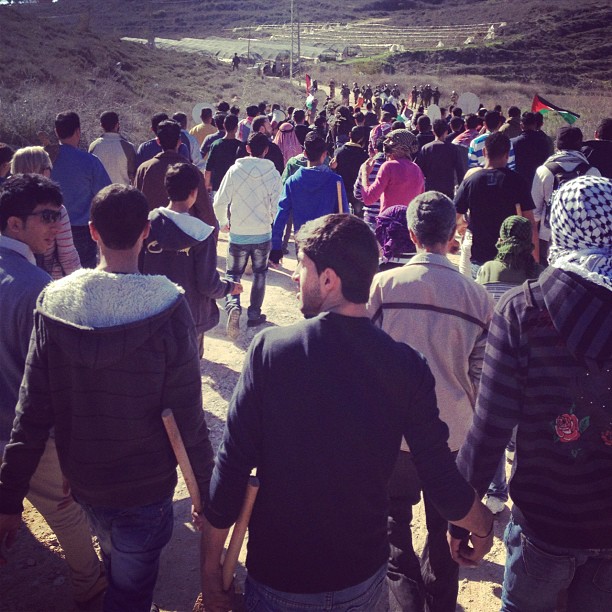Tag: Qaryut
-
Fifteen detainees from Qaryut to attend trial on first of May
23rd April 2013 | International Solidarity Movement, Qaryut, Occupied Palestine By Team Nablus Over the past 5 months 15 people from Qaryut, mainly youngsters, have been arrested by the Israeli occupation authorities. The charges include `attending illegal demonstrations` and being in `closed military zones`. All detainees will face trial on the first of May. Among…
-
New state, same occupation: violence in Qaryut as villagers attempt to remove illegal roadblock
30 November 2012 | International Solidarity Movement, West Bank, Occupied Palestine Many injured as Israeli Forces fire rubber-coated steel bullets and tear gas canisters directly into a crowd from close range during a peaceful attempt to remove an illegal road block. On approaching the turn of the road in close vicinity to the settlement that…
-
Between Qaryut and Jaloud: systematic ethnic cleansing
By Maria Erdely 30 May 2012 | International Solidarity Movement, West Bank Derar Ammer’s family has owned the land they live on since 1936. He is in possession of the papers that state that this land and the home his ancestors built on it is rightfully his, which date back to the British mandate. Nevertheless,…

